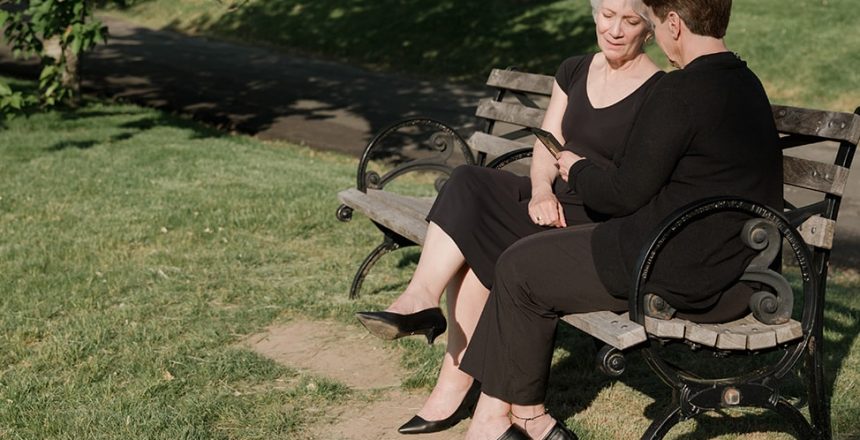Losing a loved one is one of the most difficult and life-changing events that we will ever go through. And as awful as it is to consider, it will happen to all of us at some point in our lives. Though no one likes to even think about death, yet alone talk about it, preparation and planning are immensely helpful when you are confronted with the death of a partner, parent, or other loved one.
Grief is overwhelming and exhausting. Many deaths are unexpected and can upend your life in numerous ways. Having your affairs in order before you need them takes away some of the challenges during a very stressful time.
Though figuring out your finances might feel like the last thing in the world worth tackling in the wake of a loss, it makes both the logistical and grieving processes easier when you do.
Where to Start After the Death of a Loved One
In grief, your body and your brain are working overtime to process and handle this sad event. A grief counselor once told me, “The only way out of it is through it.” There’s no avoiding grief – we simply have to do our best to get up each day and get through it, until eventually it becomes easier.
But along the way it’s important to take care of yourself. Walk, eat well and regularly to fuel your brain and body. Ask for help when you need it. That might mean calling a friend and asking for a shoulder to cry on. If you can, set up routines and spend time with family and friends. Share stories of your loved one.
Don’t Rush Important Decisions
In addition to the emotional toll it can take on you, loss can make routine decisions and responsibilities feel overwhelming. One of the first rules of thumb is not to make any big decisions or changes in the first 6-12 months after the death of your loved one.
It can be far too easy to let emotions influence our decision-making. Try to avoid selling the house, changing jobs, changing routines unless you have to for the first several months. Letting the dust settle can give you a clearer picture of what you really want.
For now, just focus on getting your house and heart back in order. Chances are, that job is more than big enough on its own without taking on anything extra.
Get Your Documents in Order
It’s vital that you understand how the estate settlement process works, and that you can easily access all important documentation. This is especially important for women, as research shows that 90% of women will manage assets on their own at some point during their lifetime.
Prepare ahead of time by educating yourself on the financial vitals. You can imagine how difficult it would be to navigate the death of a loved one if you don’t know what is there and where it is.
Initially you will want to make sure that your current lifestyle is supported with cash flow coming in as you adjust to life. Eventually, it will be important to meet with a financial planner to review your financial situation and make any necessary changes to lifestyle or investments.
Who to Contact and What to Do
- Get multiple copies of the death certificate. Any institution who is helping you transfer accounts or put a new authorized individual on an account will at least require a copy of the death certificate.
- Start the probate process with an attorney, ideally the one who wrote the will. This is the process to legally settle the estate of the deceased in court.
- There are some ways to avoid probate, which saves fees and time/hassle, like living trusts, retirement account beneficiaries, Joint with Right of Survivorship and Transfer-on-Death registrations.
- Check your beneficiaries!
- Notify social security
- Notify insurance agencies and banks/investment firms
- Notify credit reporting agencies
- Look at bank accounts and figure out what bills are being paid by check or auto draft
Seek a Caring Support Team
While your finances may be the last thing on your mind after a loss, there are certain steps you must take to protect your assets and maintain your lifestyle. When it comes to navigating the death of a loved one, you need a plan.
A good financial advisor can help you figure out when the time is right to make changes to your monetary strategies, from investments to insurance policies. If you feel Abeona could help you at this very challenging time, then please do get in touch. We’d be honored to listen to your story and help you navigate the death of your loved one with care and compassion.
—
A note from Mary Meadows: This post is the fourth in a series on navigating life changes, in which I cover important things to consider during different major life events that can all too often upend a financial plan. Read the previous parts here:
- Part One: How to Successfully Prepare to Change Jobs
- Part Two: How to Plan for Marital Finances
- Part Three: How to Deal with Divorce

